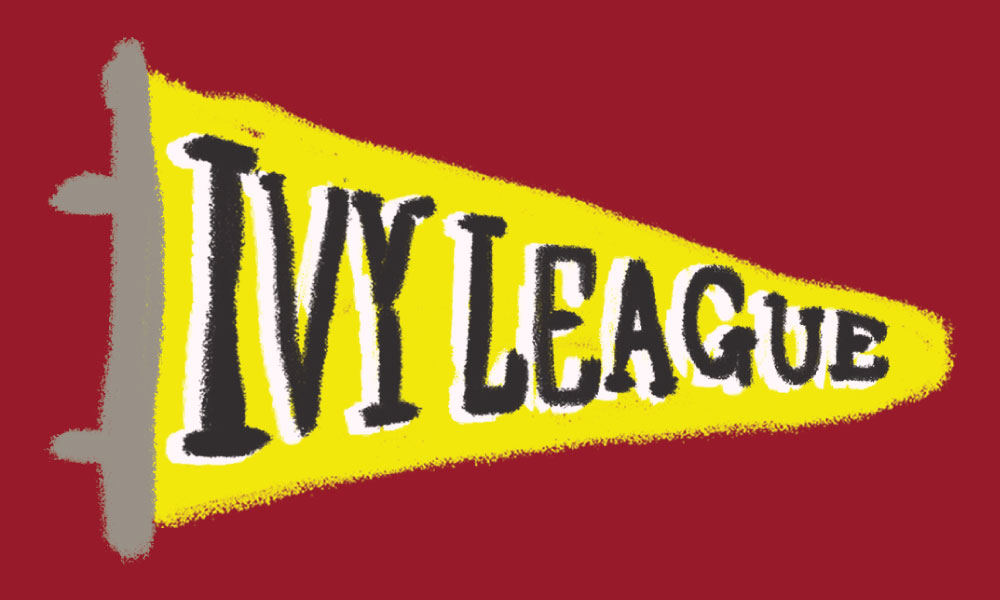Parenting
What You Need to Know Before Applying to the Ivy League
Here's a lowdown on some of the world's most prestigious schools.
All around the world, the universities that form the ‘Ivy League’ have an undeniable prestige associated with them. When you are applying to the United States for undergraduate studies, you can’t help but research a fair bit on the member universities.
In fact, the Ivy League was founded in 1954 as an East Coast athletic league. Certainly, all eight member universities have global recognition for their high levels of academic rigour. However, they are not necessarily the eight best universities in the U.S. Within the Ivy League, different universities have different strengths, and there are, of course, other universities that aren’t part of the Ivy League that are equally as prestigious and well-endowed, such as Stanford and MIT.
Should you apply to an Ivy League University?
If you have a strong academic track record, a wide range of interests, and a thirst for knowledge, then you should consider applying to an Ivy League university. However, definitely do not apply to a university simply because it is part of the Ivies. This is a rather outdated view, given that there are many equally prestigious schools outside of the group that may be better suited for you. Rather than looking at the Ivy League as a single unit, do a deep dive into each university to see which ones actually interest you. The eight member universities, while all excellent, vary greatly.
There are many equally prestigious schools outside of the group that may be better suited for you.
A few things to consider:
Course of study: liberal arts versus core curriculum. Some universities, such as Brown, are dedicated to the liberal arts. Brown has an ‘open curriculum’ which means there are no required classes that students must take in order to graduate. Students simply have to graduate with enough credits in their major speciality — referred to as a concentration. Other universities, such as Columbia, pride themselves on their core curriculum, where students have to take classes across all disciplines, in addition to their major.

Some schools, such as Brown, have an open curriculum that lets students shape their own college journey. Illustration by (c) Reset Fest Inc, Canada.
The university’s location and student culture: Do you want the big city feel like New York or do you want to experience a student town like Princeton?
Fields of specialty: While all of the Ivies have excellent professors across the board, there may be certain thought leaders in subjects you wish to specialize in that may influence your learning experience. For example, before applying early decision to Columbia, I was quite sure that I would major in economics. The caliber of economists teaching at Columbia was definitely a factor in my choice of university.
Admissions are not need-blind for international students at most of the Ivies, with the exception of Harvard, Princeton and Yale
Housing and tuition fees: This is a conversation you’ll want to have as a family to see which budget suits you best. Bear in mind that admissions are not need-blind for international students at most of the Ivies, with the exception of Harvard, Princeton and Yale. This means that if you apply for financial aid at any of the other Ivies, it will be a factor that the admissions officers keep in mind when making a decision on your application. Be sure to know beforehand which schools are need-blind for international students and which aren’t so you don’t restrict your options later.
Benefits of attending an Ivy:
The benefits of studying at an Ivy are numerous, however, keep in mind that not all of them are exclusive to these schools. Below are a few core benefits:
The quality of education and learning both inside and outside of the classroom:
- Your professors will be Nobel Prize winners, former heads of states, world-renowned writers, lawyers and even the former head of the U.S. soccer federation.
- Thanks to the professors and your peers you will never be short of interesting discussions, even (or especially!) late night at a college bar.
- The extent and level of the electives on offer will ensure that you are constantly learning. Some universities such as Columbia are famed for their core curriculum, which ensures that every student has at least enough knowledge on the arts and sciences to hold their own at a cocktail party.
- An abundance of excellent professors who are genuinely keen for you to stop by during their office hours and pick their brains.
- You’ll be spoiled for choice when it comes to attending talks and events and interacting with world leaders and other dignitaries who flock to speak at the Ivies.

Columbia University prides itself on its core curriculum, where students take classes across all disciplines, alongside their major. Illustration by (c) Reset Fest Inc, Canada.
The future career opportunities given that:
- Of course, the Ivies hold weight in the eye of an employer, moreover, they also attract all the behemoths of the corporate world to their on-campus recruiting events.
- The on-campus job placement services are set up to ensure that the students succeed upon leaving university. They are also open to alumni to access after graduation.
- There are many networking events for the Ivy League and equivalent universities before and after graduation around the world.
- The Ivies have a strong alumni network spread across the globe which you can tap into for internships, jobs and making friends when you move to a new city!
Excellent facilities:
- The large endowments of the Ivy League universities allow them to maintain beautiful sprawling campuses.
- As a student, you’ll have a myriad of options when deciding which library you want to study in. Furthermore, you will be able to get an alumni card and access them even after graduating!
- It goes without saying that the university will have first-rate gyms, tennis courts, indoor running tracks, swimming pools, football fields and any other facilities you can dream of.
Admission Tips
Apply early action or decision to your top choice:
- Not only does this demonstrate organization and interest, but you are letting the university board know that this is your first choice. Universities also care about the ratio of admitted students to students who enroll.
Make your application stand out from the others:
- Don’t shy away from writing about your quirky hobbies, provided that they have contributed towards your development and who you are today.
- Definitely do not submit loads of supplemental documents such as additional essays and coursework, but ensure that your essays highlight your unique achievements and experiences as much as possible. Don’t shy away from writing about your quirky hobbies, provided that they have contributed towards your development and who you are today. In my admissions essay for Columbia, I spoke about my experience teaching at an orphanage in Nigeria and how that impacted my outlook on life. The admissions board wants to ensure that the classroom is as diverse as possible with constant peer learning.
- Put equal emphasis on your extra-curricular activities and life outside of school in addition to your grades. Remember, the top universities look for well-rounded, holistic students not just rote learners.
Start prepping early
- Get a guidance counselor or your parents to read your essays before submitting.
- You’d be surprised how many candidates leave their applications to the last minute — especially international students coming from a non-American curriculum who tend to be hazier on the U.S. deadlines. Check the application and test dates well in advance!
- Be sure to start prepping for the tests (SAT or ACT) as early as your junior year, sign up for the Common App and the prospective universities’ admissions mailing lists, and register an account to submit your documents as soon as the applications open. This will give you ample time to retake tests and have your essays reviewed.
- Make sure you read over your application and essays several times before submitting. I recommend getting someone like a guidance counselor or your parents to read them for you. Two pairs of eyes are always better than one. When reviewing thousands of essays, a typo is a good reason for a university to deny you admission!
Devika Dalamal (Columbia University, Class of 2011) is the founder of UniAdvisory, which assists with university and job applications. Devika also interviews candidates for admission into Columbia.
























